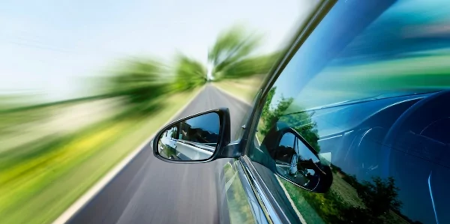 Friends of my parents were returning from Vancouver to Kelowna this past weekend and were pulled over for excessive speeding. They were doing 44 km/h over the speed limit. It was a family of 4 returning from a hockey tourney.
Friends of my parents were returning from Vancouver to Kelowna this past weekend and were pulled over for excessive speeding. They were doing 44 km/h over the speed limit. It was a family of 4 returning from a hockey tourney.
The officer said he could give them an excessive speeding ticket and have their car impounded. The driver replied that he didn't realize the speed was that low there.

It was an area 20 to 30 min from Merritt heading to Kelowna where it is reduced to 80 km/h and he was doing 124 km/h.
They ended up with no ticket at all. Does the officer have discretion for 1) not giving a ticket and 2) not impounding their car?
Technically, the officer does not have discretion on the impound.
Impoundment of motor vehicle
251 (1) If a peace officer has reasonable grounds to believe that a person
(d) has committed an offence under section 148,
the peace officer or another peace officer must
(g) cause the motor vehicle to be taken to and impounded at a place directed by the peace officer, and ...
However, I just can't see a violator standing at the front counter of the detachment screaming that they want the officer charged for failing to do their duty and impound the vehicle. Stranger things have happened but the officer does take a small risk when they fail to do their legislated duty.
The ticket is a bit of a different matter.
Excessive speeding
148 (1) A person who drives a motor vehicle on a highway at a speed greater than 40 km/h over the applicable speed limit set under the authority of an enactment commits an offence and is liable on conviction to not less than the aggregate of the fine amount and the applicable supplemental fine amount, if any, prescribed under section 148.1 for this offence and, subject to those amounts, section 4 of the Offence Act applies.
(2) If a person is charged with an offence under subsection (1) and the evidence does not prove the offence but does prove a contravention of section 140, 146 or 147, the person may be convicted of contravening section 140, 146 or 147, as the case may be, and the person is liable on that conviction to not less than the aggregate of the fine amount and the applicable supplemental fine amount, if any, prescribed under section 148.1 for that offence.
"Regular" speeding is a lesser included offence of Excessive speeding so it is not like a wrong charge has been issued, it's all speeding. When we get to the point of actually deciding how fast the vehicle was going as part of a trial, it is actually the presiding justice who is bound by the law.
Fines for speeding offences
148.1 (3) A person who contravenes section 140, 146 (1), (3), (5) or (7), 147 or 148 (1) is liable on conviction to a minimum fine of not less than the aggregate of
(a) the fine amount prescribed in relation to the contravention, and
(b) the supplemental fine amount, if any, prescribed in relation to, and applicable to the degree of, the contravention.
So, if the Justice decides the speed falls in the legislated categories the law binds them to impose the specific penalty for that category. In fact, the officer could have written the ticket for a lower amount and the Justice could be bound to increase the penalty to what is specified.
Related Information About Excessive Speeding
Share This Article
Would it not be correct to say that many times, police officers will exercise judgment - rather than following the letter of the law?
- Log in to post comments
- Log in to post comments

"Technically," huh?